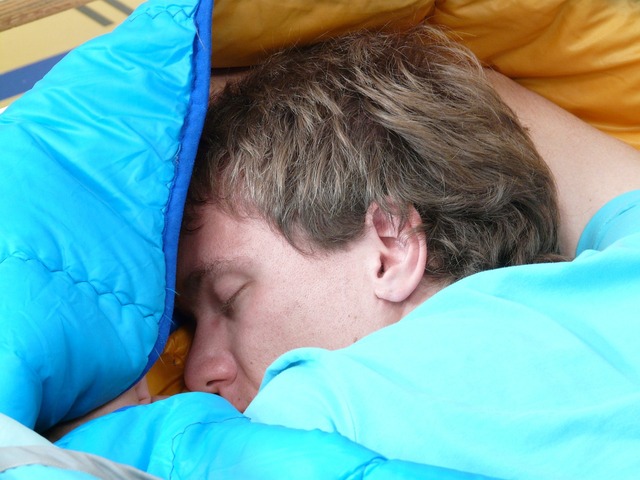
Thyroid glands and the thyroid hormones control some of the most vital bodily functions in mammal bodies, including humans; thyroid glands control the metabolism. When one suffers from Hypothyroidism, thyroid glands are underactive producing less thyroid for the body. Initial symptoms may be as simple and common as fatigue, weakness and facial puffiness, however, if not treated early, hypothyroidism may progress into slow metabolism and general symptoms and health complications.
Common yet misunderstood
In 2014, a study by The Lancet and Indian Association of Endocrinology found that India had over 42 million incidences of thyroid disorders; hypothyroidism is most commonly prevalent. The study also found that hypothyroidism affected over the double the number of females (15%) compared to the males (6%). The most affected age group for both the sexes was between 40 and 53 years. The study also observes that incidence is higher among the hinterland populations compared to the populations living along the coast in India. At my clinic, hypothyroidism patients are the highest followed by patients with allergic rhinitis, PCOD, and diabetes.
Recognise hypothyroidism with symptoms
Besides the common symptoms mentioned earlier, prolonged thyroid failure may lead to several symptoms; they all may not appear in each patient, however, these are a few clinical features of the disorder. Early signs include feeling sleepy and drowsy all the time, and weight gain. One may develop cold intolerance, and the voice may become hoarse. Anaemia, dry and flaky skin and hair, hair fall, are some of the commonly observed symptoms among hypothyroid patients. Tingling in palms and swollen feet are also seen among many patients. One may develop constipation. Ladies may face menstrual irregularities, the absence of menses, and males may develop infertility and impotence. Depression is also one of the clinical features of hypothyroidism.
Homoeopathy helps with hypothyroidism
A 19-year-old lady visited my clinic with a backache, leg pain and constipation. She also complained about irritability. She did not have a definitive diagnosis despite her longtime nature of the symptoms; however, her low weight at 35 kg at her height of 5 feet 4 inches alerted me. After an initial prescription of Aesculus, a detailed case taking revealed the young lady's family history – both her sisters suffered hypothyroidism. After thyroid profiling, I prescribed her specific medicines considering her physical symptoms and psychological features. In the follow up a backache was gone, but constipation persisted. Higher potency of the medicine was given, and after a month her thyroid tests revealed all the levels were within the normal range. After six months of continued cautionary medication, she has been symptom-free for the past two years without any medication.
Expecting mother at thirty-something was investigated for thyroid after seven weeks of pregnancy. The test results revealed disturbed than normal thyroid levels, though she had no symptoms. She was a known case of PCOD and had a history of sudden weight gain at menarche. After the thyroid-test revelations, she was concerned about the foetus' growth. I counselled her about pregnancy-specific hypothyroidism among women as the demand for thyroid during pregnancy. I also assured her that her condition would not adversely affect her pregnancy or the baby. I also prescribed her Calc Carb, and the thyroid-test was done after a month; the results showed significant positive benefits of the medication. The mother was monitored for hypothyroidism through the pregnancy and later until she lactated. The newborn was also tested for hypothyroidism. The mother and the baby showed no signs of the disorder.
A young 10-years-old boy suffered from swelling on his throat. He as a diagnosed case of hypothyroidism as young as 8-years-old, although when he came to my clinic, he was not responding to any treatment. A detailed case taking revealed that his sister was also diagnosed with hypothyroidism, around the same age as he was. To further investigate his case, I advised antithyroid antibody tests; these tests help us pinpoint the kind of hypothyroidism. The tests revealed he had Hashimoto's thyroiditis; the little boy’s autoimmune system had turned against the thyroid gland. Considering his peculiar case Calcarea Sulph; a follow up after one month revealed the swelling had completely subsided. His tests results were also within the normal range. I continued the medication and examined the boy every three months. He is symptoms free for the past 3 years, though he is advised to undergo regular tests to ensure symptom- and trouble-free life for the young boy.
Accurate diagnosis, personalised medication for effective treatment
In my experience, many cases of hypothyroidism are not so obvious. However, thorough diagnosis for women in the reproductive age group with complaints of tiredness, weight gain, facial and pedal swelling or menstrual irregularities have helped in identifying the disorder early and provide effective treatment. From the common symptomatic hypothyroidism cases to non-symptomatic or allied-symptomatic cases such as patients with the history of PCOD diagnosed with thyroid disorders, to post-surgery hypothyroid patients visit my clinic, and I can help them with homoeopathy.
Reference
-
Sanjeet Bagcchi. 2014. Hypothyroidism in India: more to be done. The Lancet.
-
Principles and practice of Medicine by Thomas Davidson
-
Indian Journal of Endocrinology and Metabolism
-
Principles of Internal Medicine by Tinsley Harrison